Reawakening Your Senses with Tende Guni
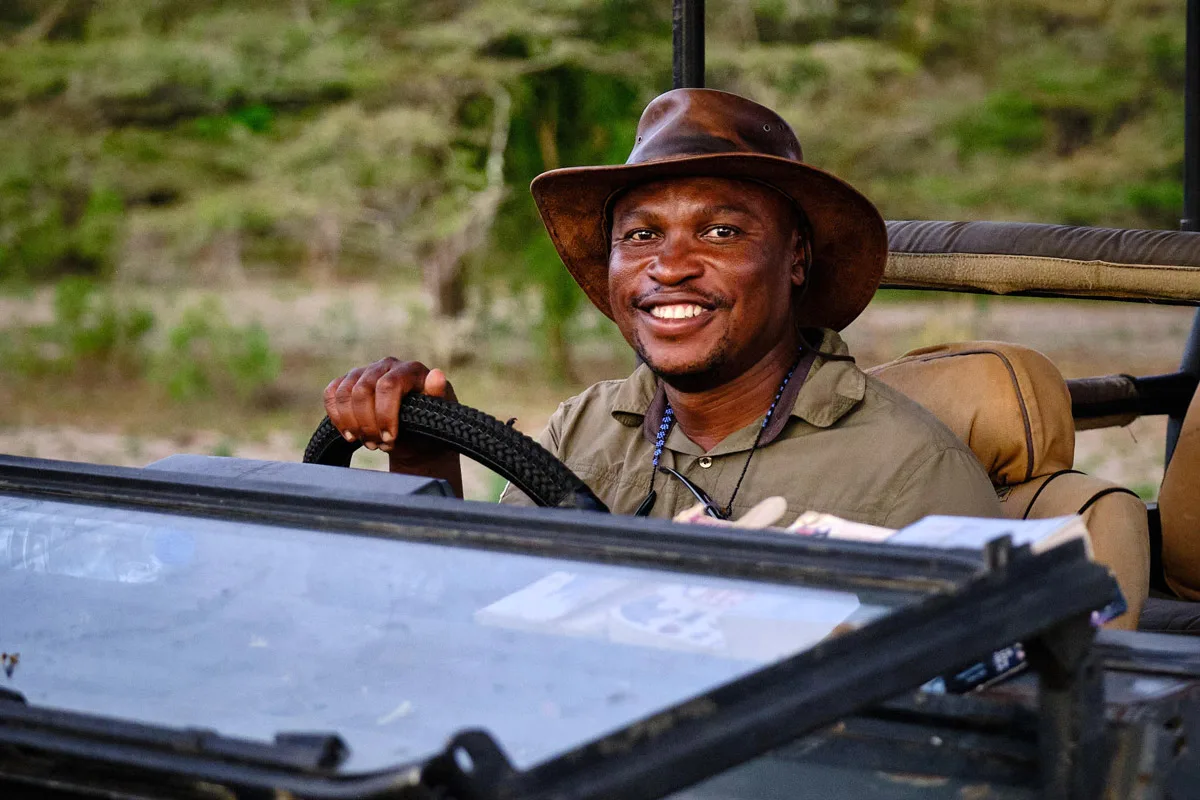

“Healing the planet starts with healing ourselves.” – Tendekayi “Tende” Guni
You attend many rapid-fire meetings at travel conferences, and while some are routine, others are quite memorable. When I received a meeting request from Tendekayi “Tende” Guni, owner and operator of Makubi Safari Camp in Tanzania’s Nyerere National Park, seeing the word “ahimsa,” or non-violence, on his website stopped me. It’s not often you see Hindu terms in marketing materials!
This was my first sign that Tende was genuinely committed to his work, and in the conversations we’ve had since that first meeting, his passion for conservation and connecting people to the wild shines through.
I want to share his story, which connects a deep reverence for the natural world with how he operates Makubi Camp, because I believe people and places like these will save us. As Tende says, “Healing the planet starts with healing ourselves.”
He knew that God created nature and that all of the answers to his questions would be found there.
Tende was raised in Zimbabwe, and his first exposure to wildlife came at a very young age when his family would return to visit their tribal home in the country for the holidays. There, he would tend cattle with his older cousins and learn to read leopard and hyena signs to keep the herd safe. His great-aunt, who lived there, also played a key role in his intuitive understanding of nature. She was a spiritual medium who had lost her eyesight to a spitting cobra.
“Her sight was taken, but a third sense had been awakened,” he said. She could locate plants or water sources within a large radius of the village without leaving the home, and based on her instructions, young Tende would harvest the plants. This way of connecting to the world fascinated him.
At the age of six, he entered boarding school, where he joined the conservation club, went camping, and studied birds. However, as he grew older, his time away at school became more difficult. He began to seek out quiet time in nature to listen to the birds and the wind in the trees to calm himself.
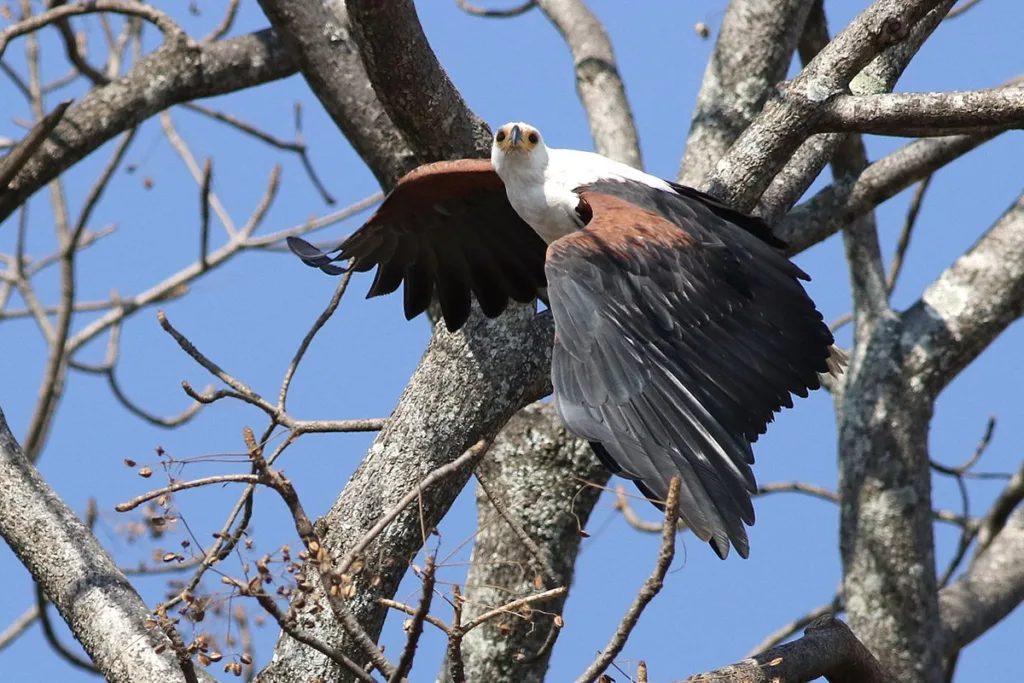
When he transferred to a Catholic high school in Harare, these escapes stopped, and his studies turned from birds to religion. This often landed him in trouble with the nuns for asking the wrong sorts of questions. He knew that God created nature and that all of the answers to his questions would be found there.
Upon graduating, Tende considered studying biology to pursue his passion but chose guiding instead because it would allow him to simply observe nature rather than make judgments about it.
“The best answers come through observation,” Tende explains, “There is a deep interconnection between everything in the landscape, and when you are there, you are part of it.”
Tende traveled extensively throughout Africa, guiding and refining his skills. Unfortunately, just as he was gaining traction on a business venture, he was hit with a challenging year, both personally and professionally, that threw his life into limbo.
Feeling truly lost, he realized that reconnecting with nature would be his only salvation.
“When you are truly searching, things fall into line,” he added, and after a chance conversation with a Buddhist on a mountaintop, he dove into meditation and yoga.
Through meditation and Buddhist counseling, he learned the importance of letting go. This also led to a deeper level of self awareness that informed his professional guide training, which was taking place at the same time. By understanding himself, he gained a greater awareness of all the animals and how they could sense his mood. Tende used a story to illustrate this:
“When a lion is hunting, the animals around sense its zest; they are alert or flee. But once it has eaten, they can sense it’s no longer a threat, and they stay calm, even nearby. Similarly, wild animals react to us. They can often sense our presence, our energy, and whether we feel calm or tense — because, like lions, humans are also seen as predators.”
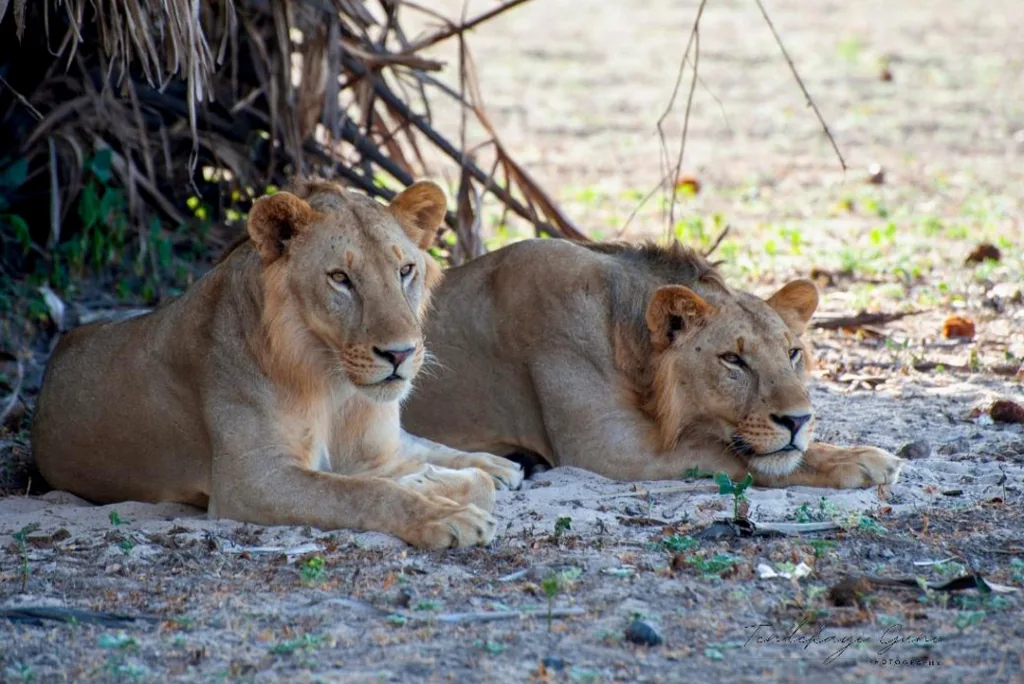
He believes animals are “smarter” than humans in that they are truly in touch with all of their senses. For example, in flood years, weaver birds build their nests high on bushes, and in drought years, they build them low. This allows humans to make predictions based on their foresight.
When guiding, Tende invites questions from guests and conveys key facts like this – especially about the interconnections between species. However, he is mindful of including plenty of space and time to sit, observe, and open up their senses in the wild.
“There is a lot we can learn in books, but they aren’t always the facts that happen in nature. The best answers come through observation,” Tende explains, “There is a deep interconnection between everything in the landscape, and when you are there, you are part of it.”
He goes on to describe his time in the bush, “You feel the quiet, the emptiness, and you realize that everything comes and goes. It’s a humbling feeling, and it can change the way you move forward in life.”
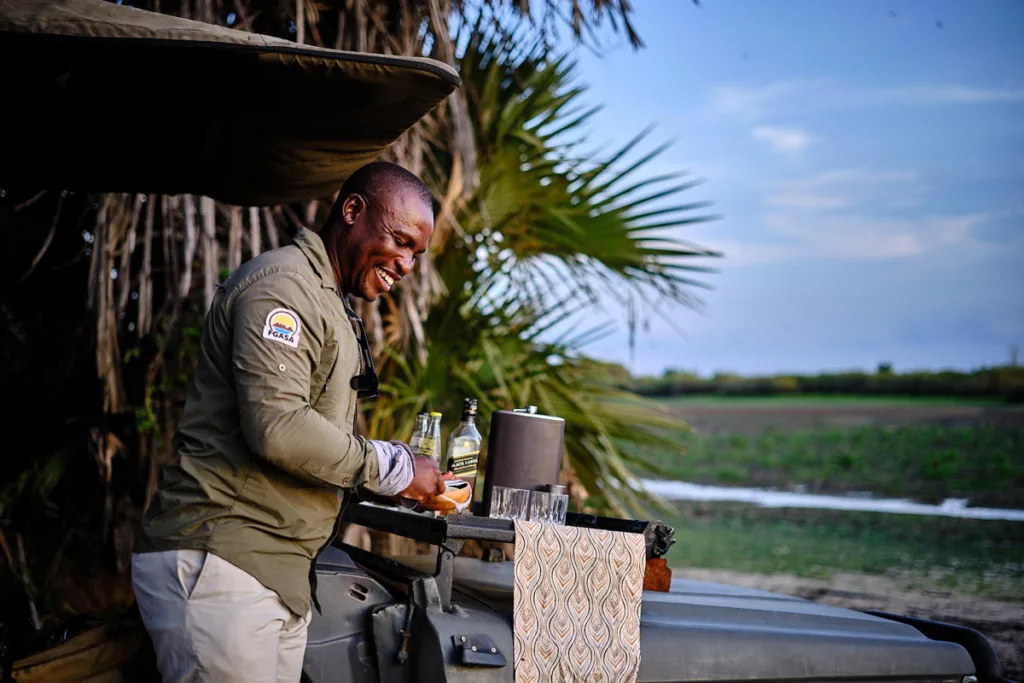
He believes that guides play a crucial role in introducing people to this view of nature. Makubi regularly has lions in camp, but guests can leave happy even if they don’t see a lion. They can leave an impression through tracks, roars, or the way they influence the behavior of other animals, and many people who come for the “Big 5” often leave as birders.
“Only awareness will save the wilderness,” emphasizes Tende.
“Only awareness will save the wilderness,” emphasizes Tende, and Makubi is the fulfillment of this realization. It is a space he has created for individuals to come, slow down, and reconnect to nature, and the camp is more about a mission than profit.
Makubi means a shrine or place of asking because legend has it that the site where the camp is located was a shrine where people would come to ask for help. He chose Nyerere National Park, in part, because it was where he had conducted some of his first guided safaris, seven-day walks with veteran rangers like Mzee Bombwe and Mzee Toboke across the Selous.
“You could walk for days and not see a single person; it was incredible,” he exclaimed.
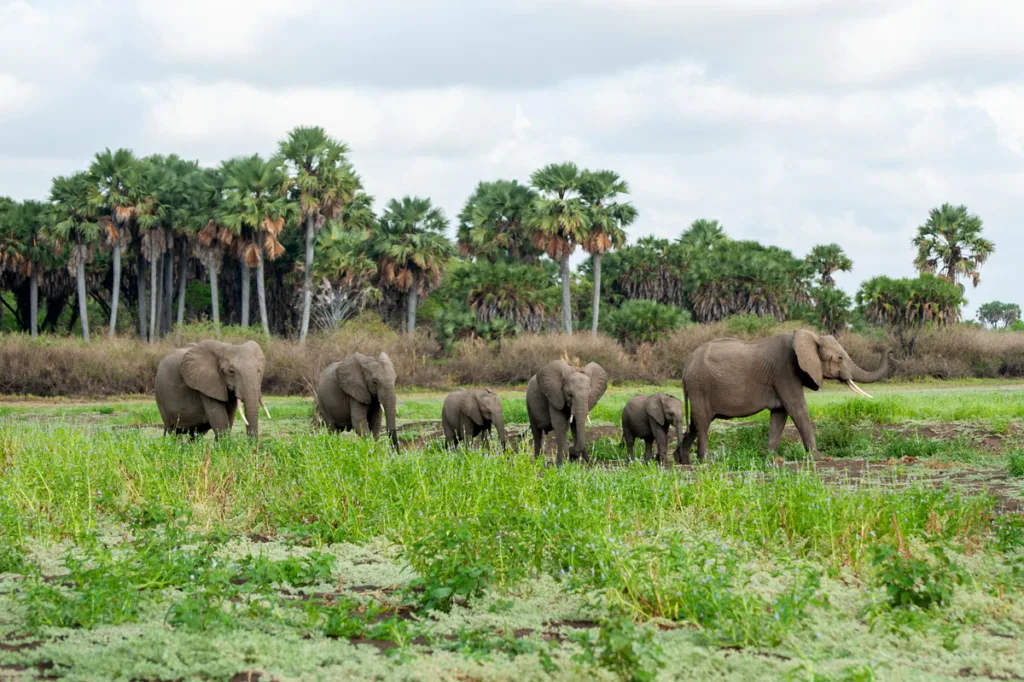
He loves the park because it is vast, bigger than Switzerland, and boasts incredible biodiversity. There are over 450 bird species and more than 2000 tree species. The landscape is dotted with a variety of ecosystems, including acacia, grasslands, woodlands, hills, and mountains, that invite exploration on foot. This challenge energizes him.
He admitted that Nyerere is not for the faint of heart. “Many people love it or hate it.”
The rainy season is intense and muddy, washing everything away. Logistics are complicated, and guides don’t have the luxury of radioing each other about the location of wildlife. They have to understand the movements of the local animals. Fortunately, it means that the people who are working there are truly passionate about what they do.
Makubi is more than the effort of one person; It’s a team united by purpose. Tende’s partner, Gcebile, leads the hospitality team and brings a gentle strength to the experience. Her calm presence shapes everything from the comfort of the tents to the delicious meals shared under open skies. Others cook, guide, or care for the land around the camp. Together, they create a place where guests feel like part of a family surrounded by kindness, connection, and respect for nature.
Tende describes working there like home. “I’m connected to it.”
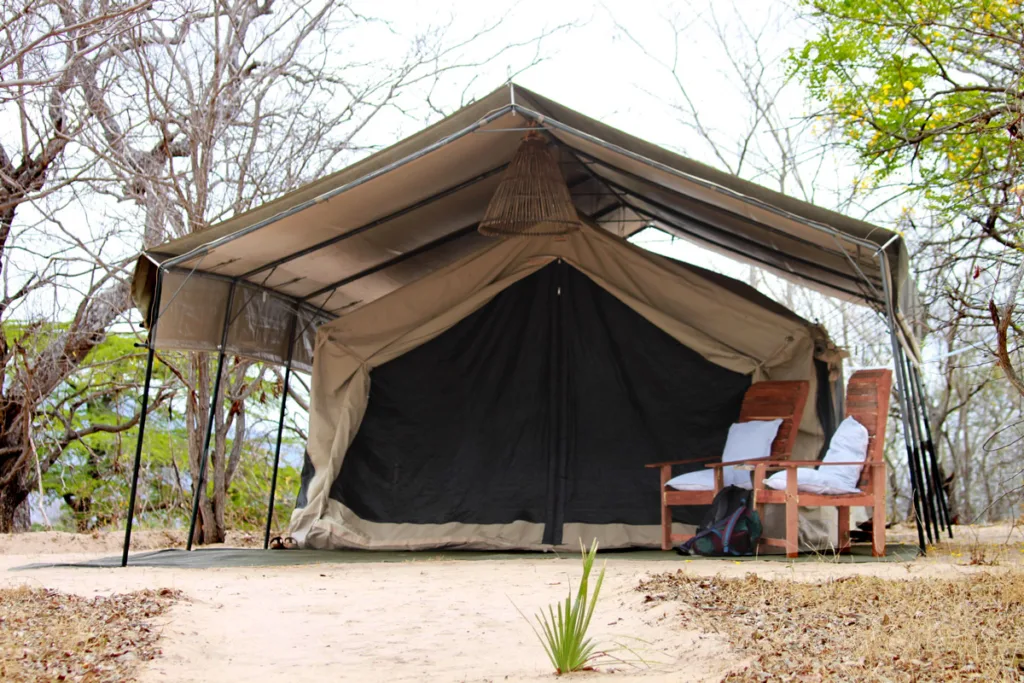
Some guests share the same sentiment and return to rest because it is the only place they have ever truly relaxed during their vacation. There is no pressure, just nature.
“We are part of nature and from the wild, but we left for the concrete jungle to build tools of detachment,” an he reiterates his belief that the human soul must heal to heal the earth. I believe he has found his way of doing his small part in that.
We combine expert knowlege with creative itineraries to make your travel dreams a reality. Contact us for a free consultation.

Get monthly travel news, destination guides, and seasonal offers delivered to your inbox.